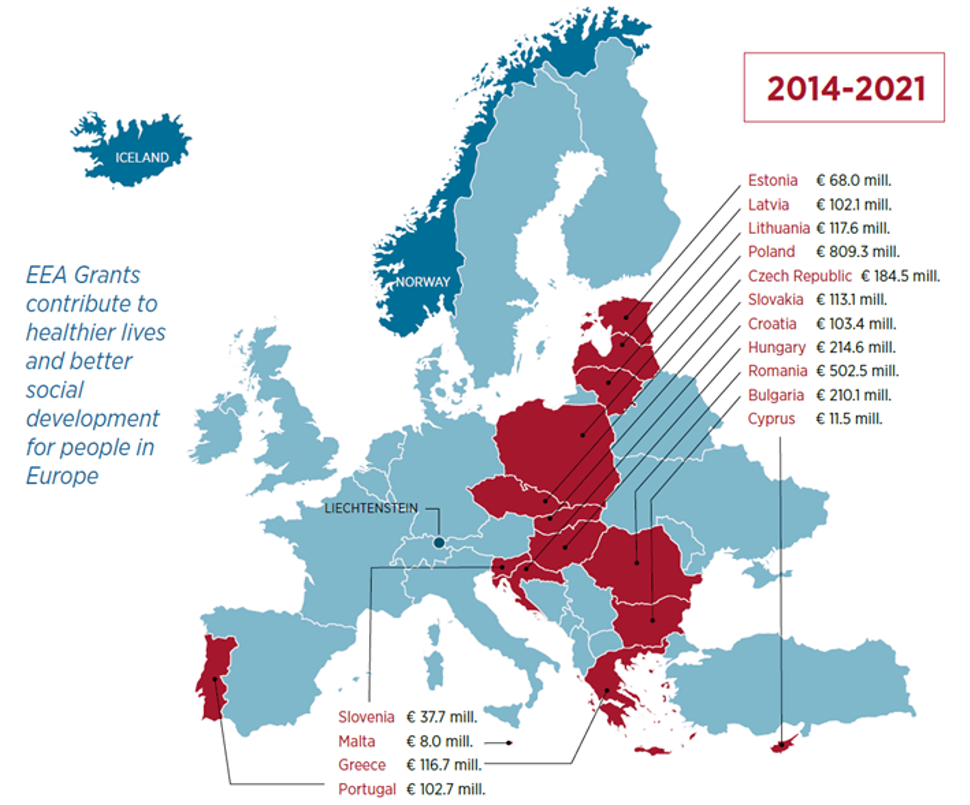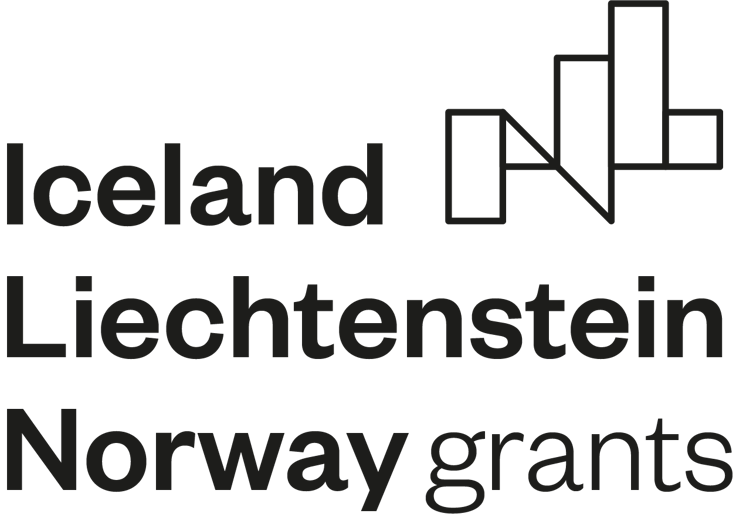About the EEA Grants and Norway Grants
Article
|Updated
The European Economic Area (EEA) includes the countries in the European Union (EU) plus Iceland, Liechtenstein and Norway. Through close collaboration with the EU through the EEA agreement and EEA Grants, Iceland, Liechtenstein and Norway contribute to reducing disparities in Europe. They also contribute to strengthening the bilateral relations with fifteen countries in Central and Eastern Europe.
History
The EEA Grants have followed the EEA Agreement since it took effect in 1994. The size of the EEA Grants has increased significantly, as new countries become members of the EU. From 2004, Norway has also contributed to a specific grant called Norway Grants.
A total of euros 1,79 billion was allocated for the period 2009–2014 under the EEA Grants, including euros 0, 8 billion through the Norway Grants. Norway covered approximately 97 percent of the contributions from the three donor countries. This period expired in April 2017.
An independent assessment panel from October 2016 concluded that planned results and impact from health projects during 2009–2014 would be reached. Also, the panel suggested that the agreement period should be extended from five to seven years to take into account the long duration of negotiations.
Current period 2014–2021
The current period for the EEA Grants is 2014–2021. A total of euros 2.8 billion have been allocated. Delays in the negotiations and start-up of programmes are the reasons why the periods overlap. Therefore, the real project period is extended to 2024, and most projects will be allowed to continue until April 2024.

The period comprises the following prioritised areas for support:
- Innovation, research, education and competitiveness
- Social inclusion, youth employment and poverty reduction
- Environment, energy, climate change and low carbon economy
- Culture, civil society, good governance and fundamental rights and freedoms
- Justice and home affairs
Within these sectors, there are a total of 23 programme areas with goals and expected results. European public health challenges is a programme area under the priority sector social inclusion, youth employment and poverty reduction.
Control mechanisms
To prevent the misuse of the EEA Grants and to secure that we obtain the expected results, a number of control mechanisms have been introduced. The system is based on the zero tolerance policy against corruption by the Norwegian Ministry of Foreign Affairs. Responsibility and commitments are distributed on different levels and entities that participate in the implementation of our programs, ref. Management and control of the EEA Grants.
Independently, the Office of the General Auditor of Norway can conduct audits of all programs and projects financed by the EEA Grants.
If Norwegian partners experience uncertainty about the project, the collaboration or the use of the grants, we encourage them to contact the Norwegian Institute of Public Health or the Financial Mechanism Office (FMO) in Brussels.
More information
The Norwegian government’s website about the EEA Grants
The Norwegian Ministry of Foreign Affairs Facebook page about the EEA Grants
EEA and Norway Grants entry on Wikipedia

